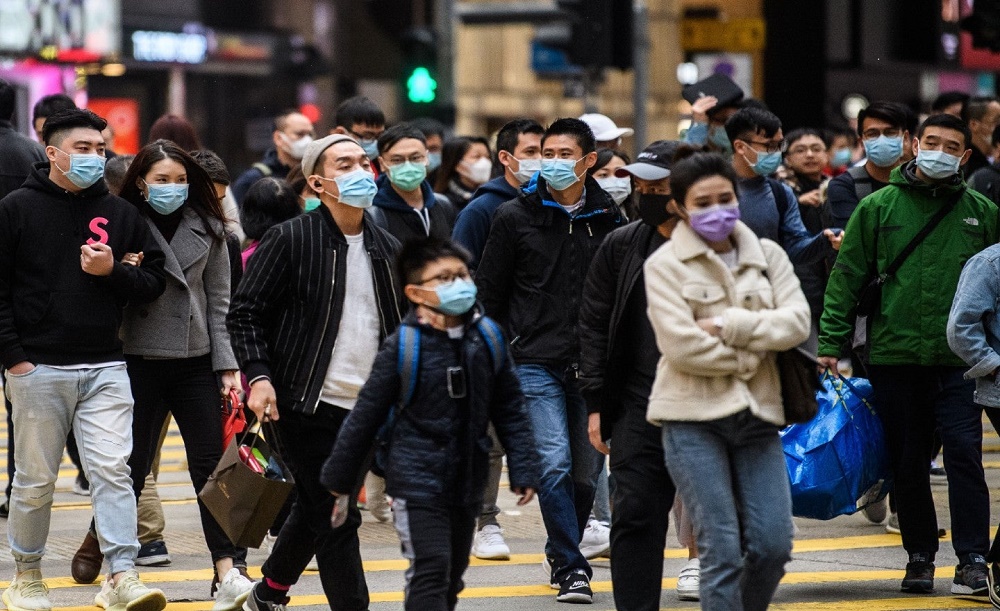Supply Chain Disruption Expected in Midst of Coronavirus
Article By : Barbara Jorgensen

Crucial to the electronics industry in this crisis is the trifecta of a US/China trade war, Brexit in Europe and supply-chain uncertainties triggered by the coronavirus.
Global technology companies have made employees their priority as the deadly coronavirus spreads across the Chinese mainland and beyond. Late Thursday afternoon, the World Health Organization (WHO) declared the virus a global public health emergency.
Apple has restricted employee travel and closed several stores. Avnet has asked employees to work from home. Peugeot and Citroen are repatriating non-Chinese staff to France.
As of Thursday, China had confirmed more than 8,1000 cases of the illness, surpassing the total from the 2002-2003 SARS epidemic. The new virus has killed 171 people in China. Confirmed cases of infection are increasing daily, adding fuel to the public’s fear.
The epicenter of the outbreak is Wuhan, one of China’s largest manufacturing centers. Foxconn and Pegatron have operations there, as do memory manufacturers such as XMC (nor flash) and Yangtze Memory Technologies Co. (non-volatile memory).
Automotive manufacturers General Motors, Honda, Volkswagen, BMW and Daimler also populate the region.

“Right now, we have our people that are in that city working from home,” said Bill Amelio, CEO of electronics distributor Avnet. As of January 23 — the date of Avnet’s earnings call — Avnet had not seen an impact. “But if it gets worse, and they start shutting down airplanes, et cetera, then that will have a different effect on shipments out the China.”
That’s precisely what’s happening. Airlines have cancelled flights in and out of China. Amazon, Google and Facebook have limited employee travel. Although most Wuhan factories are closed for the Chinese New Year, the Chinese government has extended the holiday so factory lines will remain idle longer.
The trifecta
Crucial to the electronics industry in this crisis is the trifecta of a US/China trade war, Brexit in Europe and supply-chain uncertainties triggered by the coronavirus.
The electronics industry is poised for a cascading disruption that could change industry growth forecasts for the year. Bill McLean, president of semiconductor research firm IC Insights, said the virus has exacerbated the economic unease that has stalled semiconductor capital investment.
“Brexit, trade issues and now the coronavirus are causing global uncertainty,” he said at a Boston-based forum. “Uncertainty causes [businesses and consumers] to freeze.” Worldwide, semiconductor capital spending is forecast to decrease by roughly 6 percent this year, from $103.5 billion in 2019 to roughly $97.6 billion.
Zhang Ming, an economist at government-backed think-tank the Chinese Academy of Social Sciences, warned that the virus could push China’s economic growth below 5 per cent a year in the first quarter, reported the Financial Times. Economic consensus currently puts China’s GDP growth at 5.7 percent. That average has steadily declined since 2018, according to McLean.
Global response
In addition to limiting travel, manufacturers and nations are arranging to bring their citizens home. Here’s a snapshot of some of these efforts:
United States: Google, Facebook, Apple, Avnet, Arrow and General Motors are among U.S. companies that have closed offices and factories; limited travel; encouraged employees to work from home; and even supplied face masks to Chinese workers.
The U.S. has evacuated government workers and plans to retrieve more Americans next week. As with the previous evacuation effort, which departed on the 29th, the U.S. State Department will ask private U.S. citizens to reimburse the government for the flight.
Italy: Italians working in the region will be able to use an overland transfer to leave the region and then through a flight to come back to Italy, Sandra Zampa, undersecretary for health, told InBlu Radio. “In the next 24 hours, 60 Italians will be repatriated, while 15 of them have yet to decide what to do because they are people with a mixed marriage. They are not infected. They will return on a military flight.”
Germany: Germany plans to evacuate 90 Germans located in Wuhan over the weekend, according to media reports. The plane with the Germans is expected to land in Frankfurt on Saturday evening.
Volkswagen, BMW and Daimler, as well as chemical giants Evonik and BASF, said that they would closely follow the health guidance related to the outbreak provided by the World Health Organization, the German Foreign Ministry and the Robert-Koch-Institute, which is Germany’s official health and disease control watchdog, Deutsche Welle reported. Battery maker Hoppecke had already closed its three factories for the holiday season, including its main production site in Wuhan, where about 500 workers assemble lead batteries.
“About 99% of our Chinese staff are on holidays,” the company told DW in a statement. Its entire German staff has left China already. The firm says management is waiting to see how the situation develops and what German authorities will announce as far as travelling to China is concerned.
Siemens is adhering to the guidance from relevant authorities and has furthermore put in place a series of measures to protect the health of our workforce, according to Business Insider.
France: French Health Minister Agnès Buzyn announced on January 26 that the first flight, which will repatriate about 200 French nationals from the Chinese city of Wuhan, would depart France on the 29th. A second flight would follow on Thursday or Friday.
Once they land in France, they will be quarantined for 14 days, the estimated incubation period for the virus, in a dedicated building.
PSA said it was evaluating potential evacuation options for its expatriate employees in Wuhan. In an email to CNBC, PSA specified that the decision to repatriate its employees working in Wuhan would be done “according to the proposition of the French authorities in complete cooperation with Chinese authorities.”
The fallout
Tech companies have been hesitant – so far – to forecast the virus’s impact on their business. However, previous disasters, both medical and natural, provide a basis for informed opinion. One of the first effects was felt by Wall Street.
On January 27, leading chip stocks declined– Marvell (MRVL -4.3%), ON Semi (ON -4.2%), Skyworks (SWKS -4%), Applied Materials (AMAT -4.1%), Broadcom (AVGO -3.9%), and Xilinx (XLNX -3.8%). Most have rebounded in the wake of positive earnings announcements from OEMs such as Apple.
The Philadelphia Semiconductor Index that day dropped 3.1% compared to the 1.7% decline for the tech sector due to the coronavirus worries. Apple, which both does most of its manufacturing in China and considers it a key market, was down almost 3% on the 27th as part of a broader sell-off.
“Our understanding is that Imagination won’t be any more effected than any other company with operations in China – our offices are in Shanghai, Beijing and Shenzhen,” said David Harold, CMO of Imagination Technologies. “Currently the New Year celebrations have meant that people are displaced but the government and companies, including Imagination, are recommending people work from home, at least for the next week, to try and minimize potential exposure. For employees outside of China, we are currently prohibiting travel to China until the immediate situation is resolved.”
Some of these businesses may just be whistling past the graveyard. The longer factories are idle, the greater the impact, experts say.
“The economic pain is currently being felt by businesses dependent on travel and tourism,” Mark Williams, chief Asia economist at Capital Economics, told the Financial Times. His firm estimates that China’s growth rate could halve in the first quarter. Williams added that “the longer . . . factories and businesses in China remain closed, the more production will be affected too, and this will ripple out to suppliers and customers outside China”.
Nearly all factories in China began their New Year ramp-down up to two weeks prior to the holiday, said Ron Keith of EMS consultant Riverwood Solutions. “Around 10 days before the CNY begins is the great chunyun migration, the largest annual migration on the planet. Chunyun is arguably the single most disruptive annual event in the global supply chain.”
More than 300 of the world’s top 500 companies have a presence in Wuhan, including Microsoft, Siemens and PSA. The Hubei province, in which Wuhan lies, had a GDP of $595 billion in 2018 – not far short of the economic output produced by London, and more than three-and-a-half times the size of Hungary.
Wuhan is home to 10 car factories, including those run by major manufacturers such as Honda, Renault, PSA and General Motors. The car industry represents around 20 percent of the city’s economy and employs 200,000 people directly and more than a million indirectly.
PSA said it was evaluating potential evacuation options for its expatriate employees in Wuhan.
Renault operates a plant, a mechanical center and a research center with its partner DongFeng in that city. It employs about 2000 people. Renault announced on Jan. 29 it would reopen its plant on February 10th, according to Reuters.
Valeo has 3 sites in Wuhan, including 2 manufacturing plants and a R&D center (1,000 researchers). In total, it employs almost 1900 people.
These three companies have not been economically impacted so far due to the Chinese New Year holiday.
The reality
There’s little question that the latest crisis in China will ripple across the electronics industry. China is one of the world’s biggest consumers of electronics products, and one of the world’s biggest producers. “Even though the official holiday is just one week, we find that most factories will lose about two weeks of production in total,” Keith told EPSNews. More production will be lost as the holiday has been extended.
It’s also likely many of these factories won’t have a full workforce when they come back—employees will opt to stay at home to weather the outbreak. Materials delivered during the holiday will have to be inspected before factories can ramp up. Although the Chinese Customs Office adheres to the holiday schedule, the backlog is always enormous, Keith said.
Not only are there significant delays after the holiday, incoming material is most likely to be lost during this period, he added. Shipments of finished goods will also be delayed: Keith recommended they be at ports 10 days prior to the start of the New Year.
The damage of the US/China trade war is already showing in the semiconductor industry’s capex retraction. Most of that money flows into the Asia-Pacific region and particularly to China. The trade dispute between the U.S. and China has already negatively impacted both markets, McLean said, and companies aren’t ready to commit funds for new fabs.
Relief to Wuhan
As the human toll of the virus is still escalating, tech companies are providing relief to Wuhan in the form of materials, cash and medical-supply supply donations, reported ESM China, a sister publication of EE Times. Among them:
- Huaqiang Group donated 10 million yuan to the Shenzhen Charity Association to support the epidemic prevention work.
- Qualcomm will donate RMB 7 million to relevant Chinese organizations to support the prevention and control of pneumonia epidemic of new coronavirus infection.
- Intel donated $1 million to the International Red Cross to support China ’s Coronavirus epidemic prevention and control.
- MediaTek has donated 10 million yuan worth of medical-related materials to the Wuhan East Lake High-tech Zone Government for the prevention and control of new-type coronavirus pneumonia.
- Huawei announced it would donate 30 million yuan to the Wuhan Charity Federation account for epidemic prevention and control.
- Xinwangda donated 10 million yuan of cash to the severely affected areas such as Hubei through the Shenzhen Red Cross.
— Additional reporting by Anne-Francoise Pele, Nitin Dahad, Maurizio Di Paolo Emilio and ESM China team.
Subscribe to Newsletter
Test Qr code text s ss


